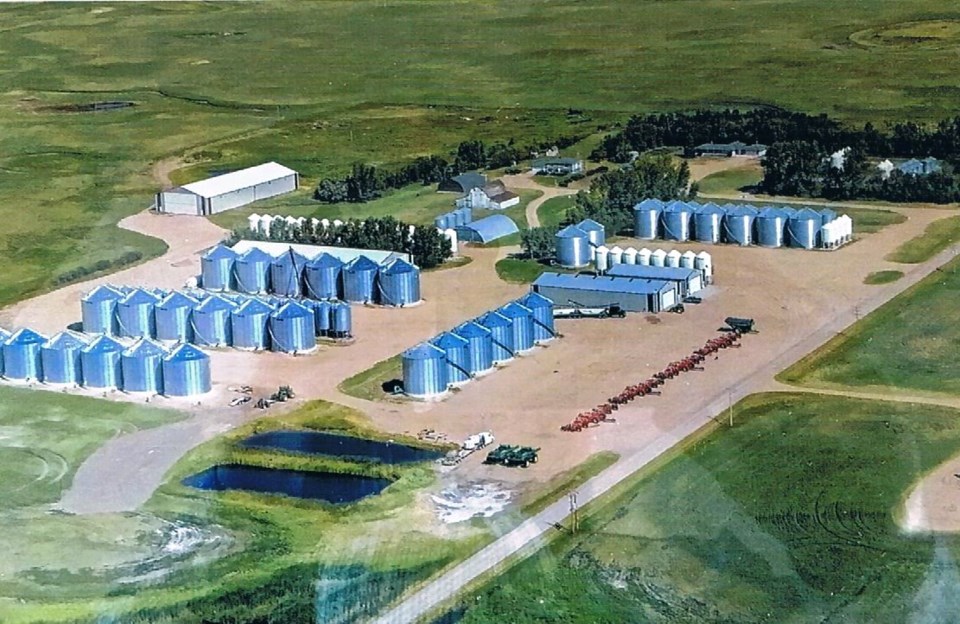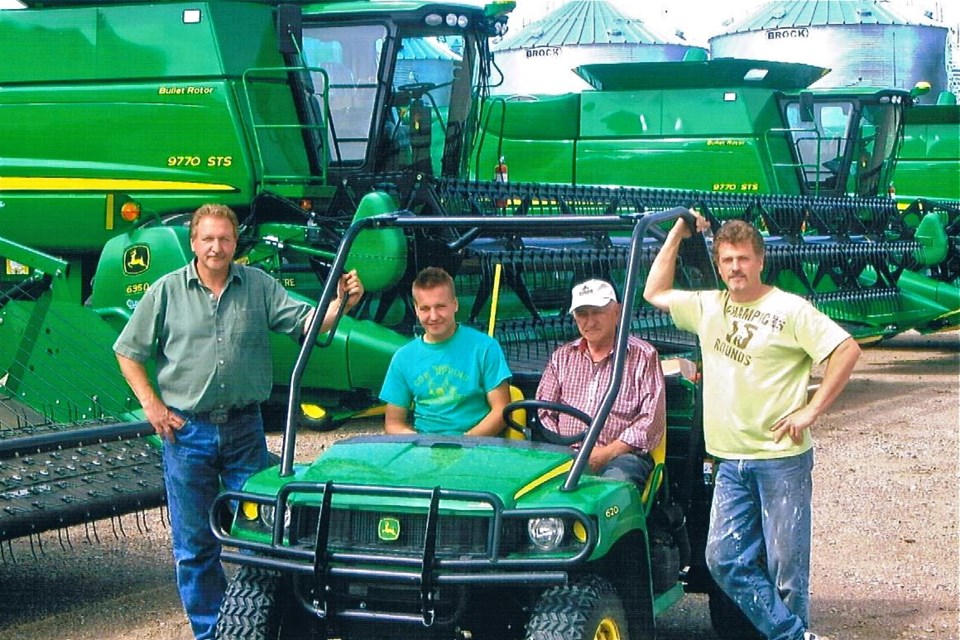Just before the southeast got rained on, Randy Johner, who farms 31,000 acres 15 kilometres north of Macoun, with help of 16 employees, had got about 20 per cent of the grain in the bins.
Even being ahead of the region’s average, in the middle of September this number might still sound quite depressing for most of the farmers, but in the interview with Lifestyles Randy said that that stress is just a part of their lifestyle.
“As a farmer, you just get used to the stress,” said Randy. “It’s a tough business for sure. What I learned from some of the older farmers is not to let it bother you.”
And while Johner’s acres of durum wheat, canola and canary seed were still soaking wet, at least green peas were already combined. With a cool summer, crops took longer to mature, and by the time some of it was ready to go the weather changed its mind.
The rain downgraded the cereals, but fortunately, so far it didn’t hurt other crops. And even though forecasters talk about a possibility of an early winter, Randy believes that they will be able to get everything done in time.
“Our farm is 75 years old. We’ve never left a crop to overwinter yet, so we are not planning on leaving one overwinter this year.”
However, the rain pushing it late makes it more difficult, as it is getting hard to get the moisture down to where the crop is dry enough to combine. Besides, the later harvest goes into fall the shorter and colder the days are and the more rain comes.
“You can combine twice as much on an August day than on an October day,” said Randy, noting that with eight combines they can progress quite fast as long as the weather co-operates.

Many farmers in the area typically don’t use dryers, but this year may turn to be different. However, for Randy, the challenges that farming carries make the work just more attractive.
“It’s always been a passion of mine, I love the industry. I don’t’ think there is anything I can do that would challenge me more than what I do. So we are never bored, it’s always a challenge. We are always busy. With the seasons our job changes and we always do something different,” said Randy.
The farm was started by Randy’s grandfather Michael Johner. In 1943 he rented what is now their home quarter and started farming.
“He had to learn it by himself. They all did back in those days,” said Randy.
Michael died at 52 years of age of a heart attack on the farm. His wife, Randy’s grandmother, received $1,200 life insurance money, which allowed her to purchase the land. And Randy’s father, Robert Johner, took over.
At the time Randy was ready to take control they had 1,000 acres of land. His skills and passion, and as he believes, the change in general approach, significantly boosted the operation.
“We lived the lifestyle that farmers had those days, in which farming was a lifestyle back then. I grew up in that lifestyle. Now farming is a business, and I run it like a business and in order to do the business properly I had to expand it,” said Randy.
Randy has been a farmer most of his life. Right after high school, he worked in the oilfield for a bit and then sold for John Deere dealership in Estevan, but farming always was playing the main role.
Out of five kids, Randy was the only one who wanted to farm. He bought his first land in 1985 and started farming after work, steadily expanding and growing. Now his bother Ken helps with the operation. Randy’s two sons also farm some land with them, while working in ag industry. The oldest son hopes to continue with the family business and one day to take over the farm.
“It’d be nice if we had the fourth generation to take over and continue on for another 40 years,” Randy said.
And to preserve lifestyle elements in what now is a business, Johners try to keep some traditions that glued things together.
“Every once in a while we’ll have a meal in the shop just to have a get together for everybody. We invite the wives usually and have a barbecue,” said Randy.
And to celebrate the 75 years of their farming history Johners put up a good old party with a country band and a dance.



.png;w=120;h=80;mode=crop)
